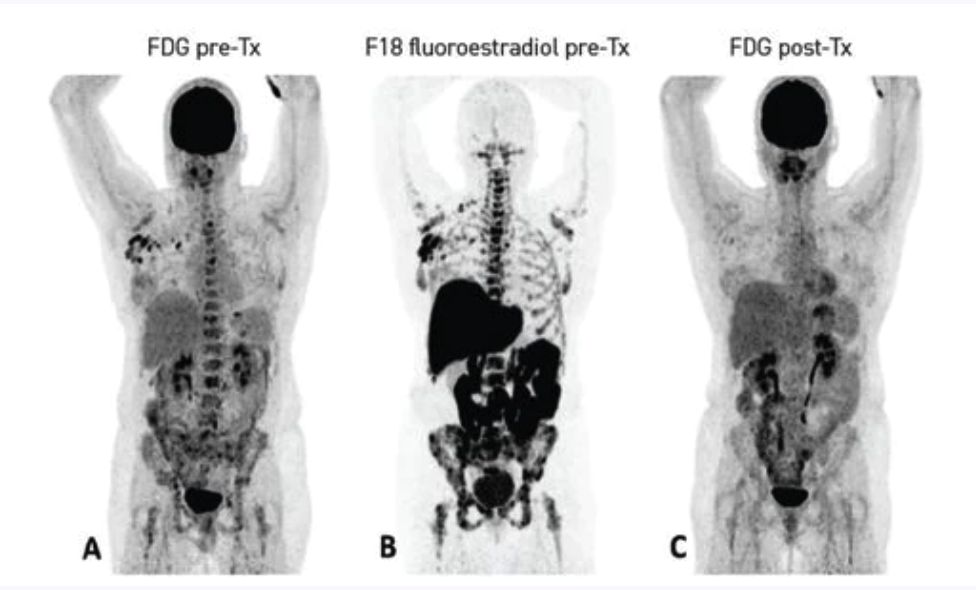NCCN Recommends FES PET for ER+ Positive Recurrent or Metastatic Breast Cancer Patients
Images

The NCCN Guidelines for clinicians and patients now recommend the use of FES PET for ER+ positive disease under certain circumstances during the systemic staging workup of patients with recurrent or metastatic breast cancer. GE HealthCare’s Cerianna, available in the US, is the only FDA approved FES PET imaging agent. This inclusion in the NCCN Guidelines comes after the Society of Nuclear Medicine and Molecular Imaging (SNMMI) recently published Appropriate Use Criteria to guide referring and imaging physicians in appropriate use of estrogen receptor (ER)-targeted PET imaging with 16α-18F-fluoro-17ß Fluoroestradiol.
Cerianna is indicated for use with PET imaging for the detection of ER+ lesions as an adjunct to biopsy in patients with recurrent or metastatic breast cancer. Providing a whole-body view of ER+ lesions, Cerianna may deliver a comprehensive assessment to assist in making an informed diagnosis and treatment plan for the patient. This could potentially enable more targeted and individualized treatment strategy and avoid the selection of inappropriate or less effective therapies.
“The latest NCCN Guidelines reflect the impact the Cerianna PET is starting to have in the care of patients with metastatic breast cancer,” Dr David Mankoff, Professor and Vice Chair of Research in radiology at University of Pennsylvania, commented. “As was the case for fluorodeoxyglucose (FDG) PET, inclusion in the NCCN guidelines will help support access for Cerianna PET for patients with MBC and provides impetus for the medical community to define the clinical scenarios where Cerianna PET will be most helpful.”
“FES PET, like FDG PET, is now included in the NCCN Guidelines. We have an opportunity to use FES PET to assess ER function in all tumor sites in patients with ER+ metastatic breast cancer,” Dr Hannah M Linden, Breast Medical Oncologist, University of Washington and Fred Hutchinson Cancer Center in Seattle, Washington, said. “This is a helpful tool for diagnostic confirmation and may have the ability to aid in prognosis and prediction of clinical benefit from endocrine based therapies, including with CDK 4/6 inhibitors. We have many endocrine options now, and FES PET may identify patients who remain ER+ and thus potentially benefit from endocrine based therapy.”
“We are delighted to see the inclusion of Cerianna PET in the NCCN breast oncology guidelines, for potential use when oncologists are evaluating metastatic breast cancer patients,” Dr Mark Hibberd, Chief Medical Officer at GE HealthCare’s Pharmaceutical Diagnostics segment, said. “Detecting ER+ lesions in patients with recurrent or metastatic breast cancer could potentially aid oncologists, surgeons and clinicians in choosing the most appropriate therapy for patients.”